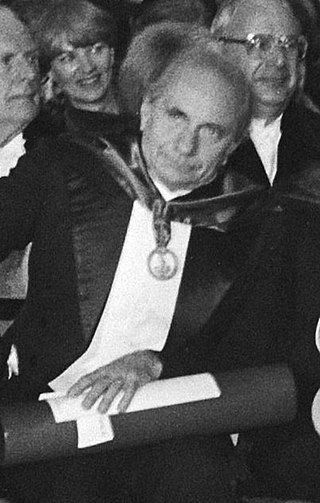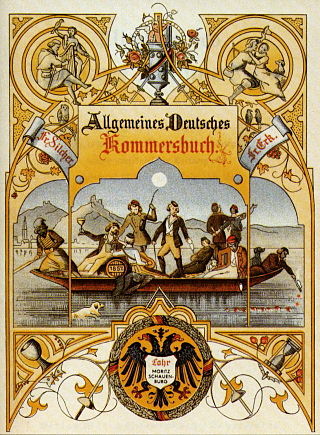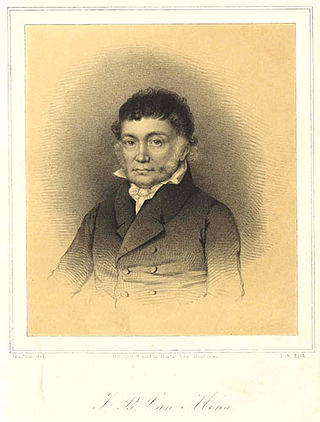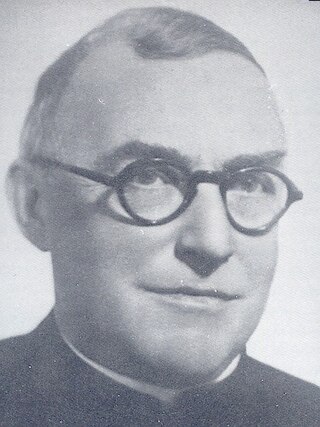
Georges Duby was a French historian who specialised in the social and economic history of the Middle Ages. He ranks among the most influential medieval historians of the twentieth century and was one of France's most prominent public intellectuals from the 1970s to his death. In 2019, his work was published in the Bibliothèque de la Pléiade. He is one of the rare historians to benefit from such an honor, with Herodotus, Thucydides, Ibn Khaldoun, Froissart and Michelet.

The Catholic University of Leuven or Louvain was founded in 1834 in Mechelen as the Catholic University of Belgium, and moved its seat to the town of Leuven in 1835, changing its name to Catholic University of Leuven. In 1968, it was split into two universities, the Katholieke Universiteit Leuven and the Université catholique de Louvain, following tensions between the Dutch and French-speaking student bodies.

Louvain-la-Neuve is a planned town in the municipality of Ottignies-Louvain-la-Neuve, Wallonia, Belgium, situated 30 km southeast of Brussels, in the province of Walloon Brabant. The town was built to house the Université catholique de Louvain (UCLouvain) which owns the entire territory of the town; following the linguistic quarrels that took place in Belgium during the 1960s, and Flemish claims of discrimination at the Catholic University of Leuven, the institution was split into the Dutch language Katholieke Universiteit Leuven, which remained in Leuven, and the Université catholique de Louvain.

Commercium songs are traditional academic songs that are sung during academic feasts: commercia and tablerounds.

UCLouvain or Université catholique de Louvain is Belgium's largest French-speaking university. It is located in Louvain-la-Neuve, which was expressly built to house the university, and Brussels, Charleroi, Mons, Tournai and Namur. Since September 2018, the university has used the branding UCLouvain, replacing the acronym UCL, following a merger with Saint-Louis University, Brussels.

A cantus, is an activity organised by Belgian, Dutch, German, French, and Baltic fraternities. A cantus mainly involves singing traditional songs and drinking beer. It is governed by strict traditional rules. The use of this dates back a few centuries and was inspired by German student organisations; however some of the songs that are sung date back to the Middle Ages. Cantus probably shares same roots with commercium, sitsit and tableround.

Le Magnifique is a French/Italian international co-production released in 1973, starring Jean-Paul Belmondo, Jacqueline Bisset and Vittorio Caprioli that was directed by Philippe de Broca. Le Magnifique is a slapstick spoof of B-series espionage films and novels and the men who write them.

Les 24 heures vélo de Louvain-la-Neuve is a Belgian festival organized by students from the University of Louvain (UCLouvain) held every year during October in Louvain-la-Neuve. The main event is a 24-hour bicycle relay race spanning the whole city, surrounded by the crowd during various music concerts and parties.

Grigore T. Popa University of Medicine and Pharmacy is a public university-level medical school located in Iași, Romania. Named in honor of the scientist Grigore T. Popa, it is classified by the Ministry of Education as an advanced research and education university.

Désiré Félicien François Joseph Mercier was a Belgian cardinal of the Catholic Church and a noted scholar. A Thomist scholar, he had several of his works translated into other European languages. He was known for his book, Les origines de la psychologie contemporaine (1897). His scholarship gained him recognition from the Pope and he was appointed as Archbishop of Mechelen (Malines), serving from 1906 until his death, and was elevated to the cardinalate in 1907.

UCLouvain Saint-Louis Brussels is an autonomous university campus specialized in social and human sciences part of UCLouvain and based in Brussels, Belgium.

Father Frédéric-Vincent Lebbe was a Roman Catholic missionary to China whose advocacy led Pope Pius XI to appoint the first native Chinese bishops. Born in Belgium, he chose to become a Chinese citizen at a time when missionaries, like all Westerners, enjoyed legal privileges in China, including immunity from Chinese law. He was captured by the Chinese Communists in 1940 and died later that year.
Thomas Herier, Erier, Erriers, or Erars was a Picard trouvère associated with the "Arras school".

The Leuven Faculty of Theology was a branch of the Catholic University of Leuven, founded in 1834 in Mechelen by the bishops of Belgium as the Catholic University of Belgium, that moved its seat to the town of Leuven in 1835, changing its name to Catholic University of Leuven.

The State University of Leuven was a university founded in 1817 in Leuven in Belgium, then part of the United Kingdom of the Netherlands. It was distinct from the Old University of Leuven (1425-1797) and from the Catholic University of Leuven, founded in 1834, which moved from Mechlin to Leuven after the State University had been closed in 1835.

The Old University of Leuven was established in 1425 with Faculties of Arts, Medicine, Law; however, the university did not have a Faculty of Theology initially. In 1426 a Faculty of Canon Law was added, and at that time both Law Faculties functioned together in one Collegium utriusque iuris.

The Irish College of St Anthony, in Leuven, Belgium, known in Irish: Coláiste na nGael i Lobháin, Latin: Hibernorum Collegii S. Antonii de Padua Lovanii, French: Collège des Irlandais à Louvain and Dutch: Iers College Leuven, has been a centre of Irish learning on the European Continent since the early 17th century. The college was dedicated to St. Anthony of Padua.

UCLouvain Bruxelles Woluwe, also known as Louvain-en-Woluwe or Alma, is a campus of the University of Louvain in Brussels, Belgium. The campus, built in the 1970s following the Leuven crisis, houses the Faculties of Medicine and Dentistry, Pharmacy and Biomedical Sciences and of Public Health, the Cliniques universitaires Saint-Luc, the university's main academic hospital, as well as many other institutions of higher education and a vast sports complex.

Pierre Charles was a Belgian Jesuit priest, philosopher and theologian. He is particularly remembered for animating the Semaine missiologique de Louvain.

The Faculty of Economic, Social and Political Sciences and Communication (ESPO) is a faculty of the University of Louvain, located on the campuses of Louvain-la-Neuve, FUCaM Mons and UCLouvain Charleroi. It originates in the School of Political and Social Sciences founded by Jules Van den Heuvel in Louvain in 1892. With over 6000 students, it is UCLouvain's largest faculty.

















